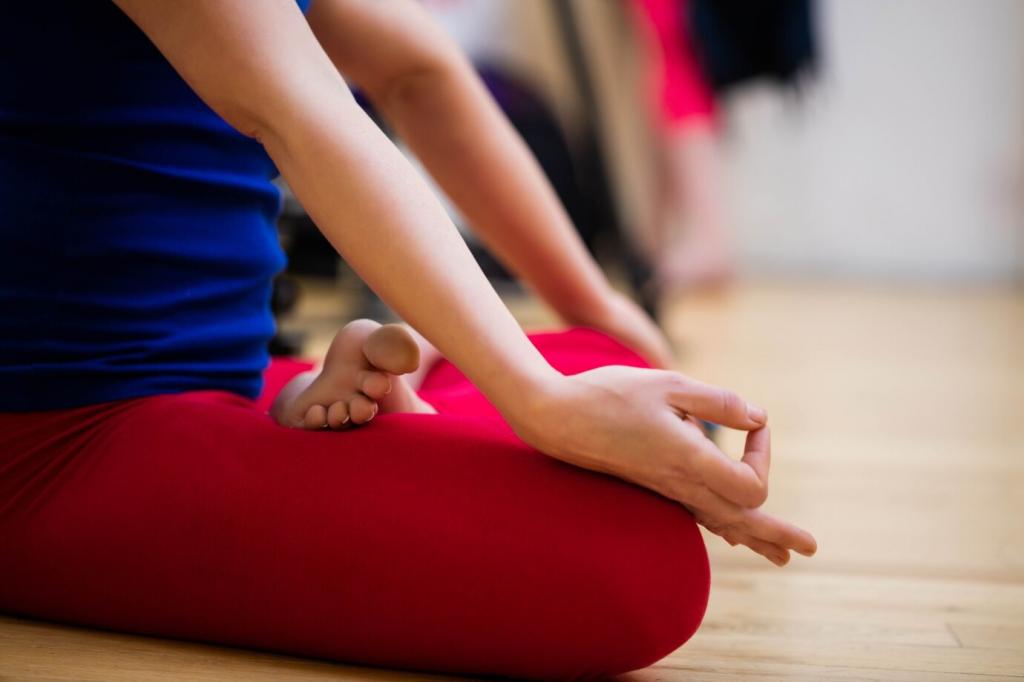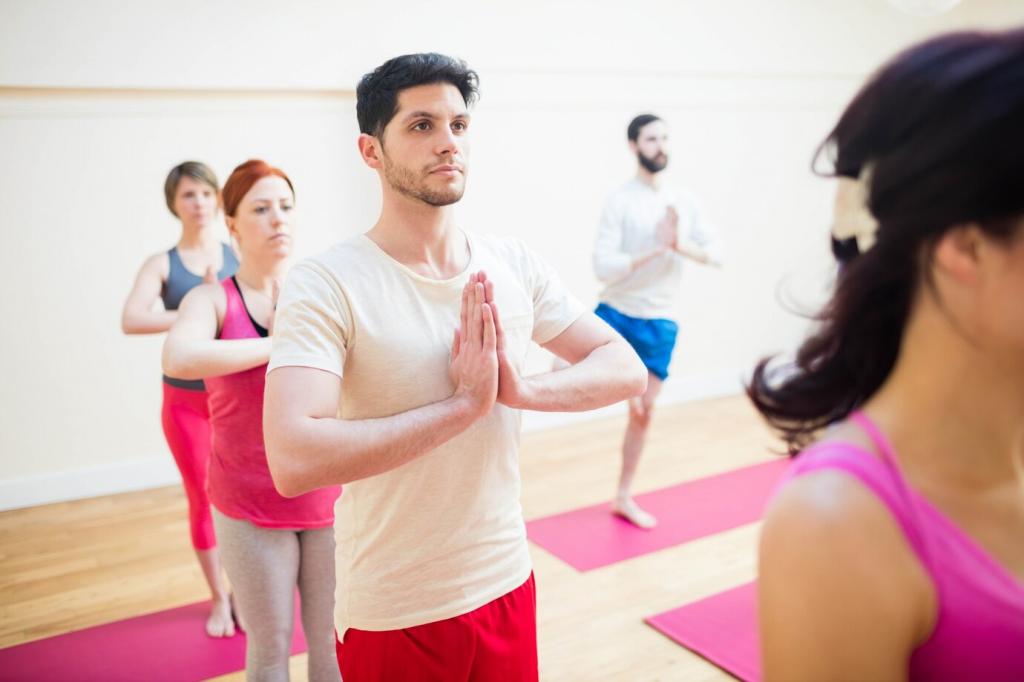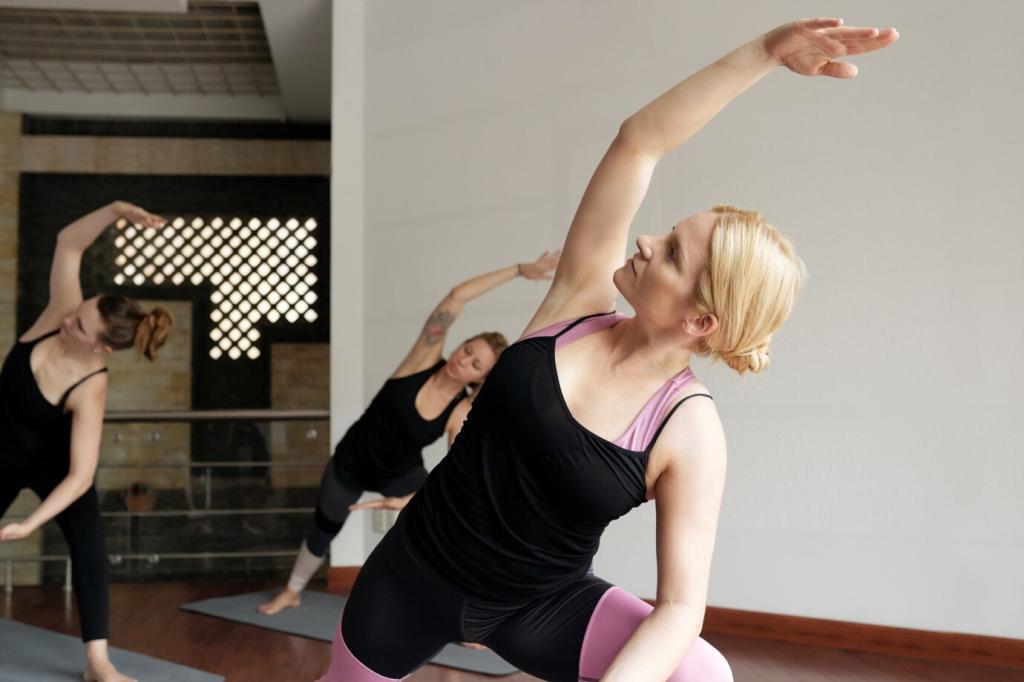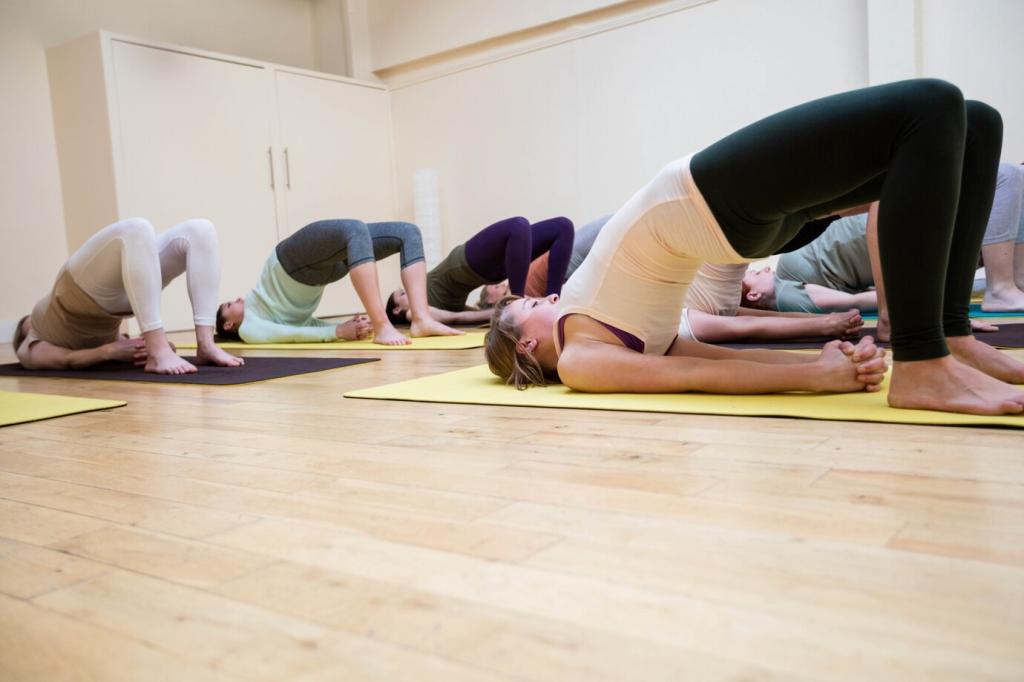Live Better Every Day: The Benefits of Integrating Yoga into Your Daily Routine
Morning Momentum: Start Strong with Intentional Movement
01
A brief sequence of Sun Salutations, gentle twists, and mindful breathing can brighten your nervous system, boost circulation, and set a steady intention before email, meetings, or chores steal your attention.
02
Practice three rounds of deep belly breathing followed by a slow exhale count. This simple ritual calms morning anxiety, sharpens attention, and prepares your mind to meet challenges with ease.
03
Lay your mat out the night before, cue a favorite playlist, and commit to just two poses. Small, reliable actions make daily yoga less intimidating and surprisingly sustainable.


Stress Less: Using Yoga to Soften Daily Tension
Between school drop-offs and late-night emails, Maya started three-minute chair stretches at lunch. Within two weeks, neck tension eased and her patience with bedtime routines noticeably improved.
Stress Less: Using Yoga to Soften Daily Tension
Inhale for four, hold for four, exhale for four, hold for four. Repeat quietly before tough conversations, during commutes, or waiting in lines to recalibrate your stress response without fanfare.
Strength, Flexibility, and Posture: Everyday Gains that Matter
Planks, Boat Pose, and slow controlled transitions stabilize your midline, making lifting groceries, carrying kids, or sitting at a desk more comfortable and less injury-prone.

Mental Clarity and Emotional Resilience
A short, consistent breath-led practice improves attentional control. Many readers report fewer scattered thoughts, better task-switching, and a smoother transition between work and home roles.

Mental Clarity and Emotional Resilience
Yoga’s pauses train a gentle gap between stimulus and action. That gap fosters wiser choices, kinder words, and the ability to reset after misunderstandings or disappointments.
Micro-Practices You Can Fit Into Any Schedule
Desk-Side Mobility
Every ninety minutes, try neck circles, wrist stretches, and a standing quad stretch. These quick resets reduce stiffness, refresh focus, and help your body feel included in your workday.
Commute Calm
If you ride public transit, practice subtle breath counting or gentle seated twists. If you drive, focus on slow nasal breathing at red lights to maintain clarity without distraction.
Wind-Down Ritual
Two restorative poses—Legs-Up-the-Wall and Supported Child’s Pose—signal your nervous system to release. Pair with low lights and quiet music to reliably transition toward restful sleep.
Evidence and Insights: What Research Suggests
Stress and Cortisol
Multiple trials associate regular yoga and breathwork with reduced cortisol and perceived stress. Consistency appears more impactful than intensity, making daily micro-sessions especially effective.
Sleep Quality
Gentle evening sequences and mindful breathing correlate with faster sleep onset and fewer nighttime awakenings. Aim for a repeatable routine to teach your body when to soften and settle.
Pain and Mobility
For many with low back discomfort, carefully guided yoga improves mobility and reduces pain intensity. Emphasize alignment cues, patient progress, and professional guidance if symptoms persist.



